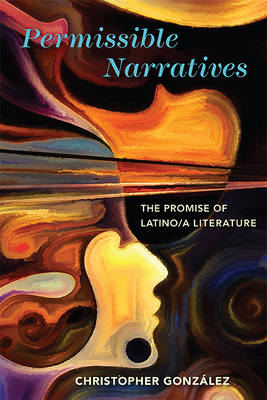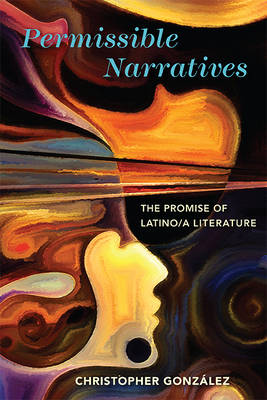
- Retrait gratuit dans votre magasin Club
- 7.000.000 titres dans notre catalogue
- Payer en toute sécurité
- Toujours un magasin près de chez vous
- Retrait gratuit dans votre magasin Club
- 7.000.0000 titres dans notre catalogue
- Payer en toute sécurité
- Toujours un magasin près de chez vous
211,95 €
+ 423 points
Format
Description
In his groundbreaking new study, Permissible Narratives: The Promise of Latino/a Literature, Christopher González examines the difficulties Latina/o writers face in writing beyond the narrow expectations of U.S. readership in the stories they tell. González argues that a constrained conception of the possibilities of storytelling by and about Latinos diminishes the development and progression of narrative form. Through an examination of Latina/o writers against the a priori mode of engaging with nonethnic literature in the United States, González explores the limitations and challenges Latina/o authors have confronted via the shaping power of their narratives to reach a sustainable audience. Bringing together cultural critique, memory, narratology, cognition, and comprehension, González examines Latina/o authors-such as Oscar "Zeta" Acosta, Gloria Anzaldúa, Piri Thomas, Giannina Braschi, Gilbert Hernandez, Sandra Cisneros, and Junot Díaz-investigating how they successfully, and sometimes unsuccessfully, use the expansive canvas of narrative form to capture the imaginations of an open-minded readership. Permissible Narratives highlights both the inequitable accessibility of narrative devices and, crucially, the daring of Latina/o authors to nurture a readership to afford the same literary deference to them that is so often afforded to white, male, straight authors.
Spécifications
Parties prenantes
- Auteur(s) :
- Editeur:
Contenu
- Nombre de pages :
- 230
- Langue:
- Anglais
- Collection :
Caractéristiques
- EAN:
- 9780814213506
- Date de parution :
- 21-09-17
- Format:
- Livre relié
- Format numérique:
- Genaaid
- Dimensions :
- 152 mm x 229 mm
- Poids :
- 476 g

Les avis
Nous publions uniquement les avis qui respectent les conditions requises. Consultez nos conditions pour les avis.






